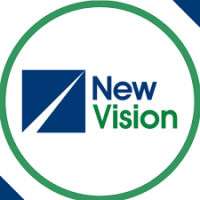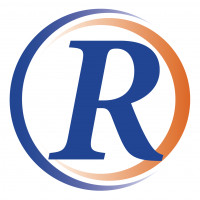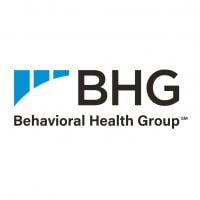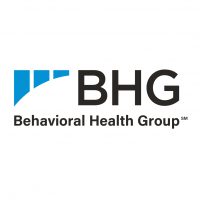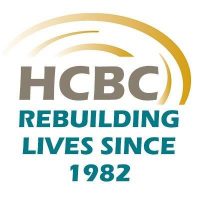New Vision - Research Medical Center
Drug Rehab Center in Kansas City, Missouri
New Vision - Research Medical Center in Kansas City offers comprehensive mental health and substance abuse services, including individual and group counseling, medication management, and evidence-based therapies to tailor treatment to meet the individual needs of patients.
Multiple patients have reported New Vision - Research Medical Center as permanently closed.
Research other rehabs in Kansas City, Missouri, or get help finding an open facility.
About New Vision - Research Medical Center in Missouri
New Vision - Research Medical Center, situated in Kansas City, Missouri, is a comprehensive healthcare facility that has been providing a full spectrum of acute inpatient, day treatment, and community-based outpatient behavioral healthcare services. With a dedication to helping individuals break free from their addictions, this center has established itself as a trusted resource in the community.
• Joint Commission accredited, ensuring high standards of care
• Licensed by the Missouri Department of Mental Health
• Offers individual and group counseling, pharmaceutical therapies, trauma-informed care, and family therapy services
• Utilizes evidence-based practices such as Cognitive Behavioral Therapy, Dialectical Behavior Therapy, and Acceptance and Commitment Therapy
New Vision - Research Medical Center is accredited by the Joint Commission and licensed by the Missouri Department of Mental Health, demonstrating their commitment to providing quality care. Their team of professionals specializes in evidence-based practices, working closely with patients to develop individualized treatment plans that address their unique needs.
The facility treats a wide range of substance use disorders, including alcohol, opioid, and other drug addictions. They offer various levels of care, such as inpatient, day treatment, and outpatient services, ensuring that patients receive the appropriate level of support throughout their recovery journey. Treatment methods include individual and group counseling, medication management, and skills-based programs for relapse prevention and coping strategies.
Additionally, New Vision - Research Medical Center provides Medication-Assisted Treatment (MAT) for those struggling with opioid addiction, as well as specialized programs for individuals with dual diagnoses, addressing both addiction and co-occurring mental health issues. By taking a comprehensive approach to treatment, the facility aims to empower patients to achieve lasting recovery and improve their overall well-being.
Genders
Ages
Modality
Additional
Accreditations

JCAHO
Conditions and Issues Treated
Levels of Care Offered
This center offers a variety of custom treatment tailored to individual recovery. Currently available are Aftercare Support, Detox, Dual-Diagnosis, Inpatient, Outpatient, with additional therapies available as listed below.
An addict may have to go through alcohol or drug withdrawal. While detox may be uncomfortable, it is not life-threatening. Detoxification allows the addict to rid the body of all traces of drugs or alcohol and gives the addict a clean slate for their recovery. In an inpatient or outpatient setting, detox can be managed medically.
Inpatient treatment for alcoholism or drug addiction is an option that provides the addict with a supportive environment in which they can stop using. This type of treatment is appropriate for addicts that are most in need of intensive care and supervision. This includes those who were unable to quit on their own, those who need more structure than they can get in outpatient treatment.
“Outpatient treatment is ideal for those who have a lower intensity addiction. It’s also suitable for those with a supportive environment and those on a tight budget.
Outpatient treatment can be considered the lowest intensity level of addiction treatment. It is ideal for early phase addiction or lower intensity addictions. It may involve weekly sessions instead of daily. Peer group support, 12-step programs, and individual counseling may still be used and anti-addiction medication.
Aftercare support is vital to those who have completed a drug or alcohol treatment program. This support comes in individual and family counseling, treatment of psychiatric and other medical conditions, and medications to reduce cravings. It helps recovering addicts adjust to normal day-to-day activities and can last for a year or longer.
The majority of drug and alcohol addicts who receive aftercare treatment do not relapse. It is estimated that without aftercare, the relapse rate will be between 70 to 90 percent for most people. Aftercare is the final stage in addiction recovery, but it will also help maintain sobriety if relapse does occur.
Therapies & Programs
No single treatment works for all addicts; therefore, the goal of treatment and therapy should be to find what works best for each individual. Some people requiring addiction treatment may only need a few weeks of inpatient care. Others will require long-term residential care. Tolerance and withdrawal levels vary from person to person and thus affect the intensity of the treatment needed.
If an individualized approach to treatment and therapy is not offered, addicts may fail to reap benefits from their efforts. Professionals must customize plans according to their patient’s needs, limitations, and strengths. The goal of all forms of addiction treatment should be for addicts to find healthy ways to cope with their addiction and its underlying causes.
The therapies usually include siblings, children, and parents who are involved in their daily lives. These sessions are vital because they address past issues that may have hampered an addict’s or alcoholic’s recovery and provide support at a crucial time!
One of the most critical aspects of family therapy is helping addicts’ loved ones see their situation in a new light. It’s also one of the most challenging things a family can do when a loved one struggles with addiction or alcoholism.
Group therapy is held in a safe, controlled setting where patients can feel comfortable sharing their struggles and gaining perspective through shared conversations. It takes place in a group rather than one on one to prevent feelings of isolation or being unique in their situation while creating an environment for addicts at New Vision - Research Medical Center to develop fellowship, accountability, and support. Group therapy is an important tool in recovery that prevents cravings that prompt a return to active addiction.
This type of therapy involves the use of a variety of therapeutic techniques to help addicts recover from past traumas that might have triggered their substance abuse. During these sessions, therapists will work with the addict to address painful memories and learn how to cope effectively with stressors as they arise.
During these types of sessions, therapists will typically focus on three main goals:
- Identifying and expressing painful emotions associated with past traumas.
- Reducing the effects of stress on an addict’s life by developing more effective coping mechanisms.
- Developing healthy ways of thinking about stressful situations that can help addicts avoid substance abuse issues in the future.
This type of therapy is typically used in conjunction with other types of addiction treatment services. By identifying and dealing with the root cause of addiction, most addicts can overcome their cravings and prevent relapse once they leave rehab.
Many different types of addiction treatment services exist to help addicts safely get sober, but it’s important for recovering individuals to find a therapist or support group that will help them address the root cause of their addiction.
Dialectical Behavior Therapy is a form of Cognitive Behavioral Therapy that helps patients understand the relationship between their thoughts, feelings, and behaviors. It is beneficial for those whose addictions and behaviors stem from severe mental health issues. It aims to help the patient achieve their goals and identify how they can enhance their lives.
Cognitive-behavioral therapy is a talking-based method that helps people struggling with addiction replace destructive behaviors with healthier ones. CBT also helps them identify the underlying thoughts and beliefs that cause these behaviors in the first place and ways to control those thoughts and feelings. It can be administered as a holistic therapy or as part of combination therapy and—as opposed to turning to drugs and alcohol—helps addicts learn how to respond to negative thoughts instead.
Payment Options Accepted
For specific insurance or payment methods please contact us.
Is your insurance accepted?
Ask an expert, call (888) 674-0062
Additional Details
Specifics, location, and helpful extra information.
Kansas City, Missouri 64132 Phone Number(816) 235-8162 Meta DetailsUpdated April 15, 2024
Staff Verified
New Vision - Research Medical Center Patient Reviews
There are no reviews yet. Be the first one to write one.
Kansas City, Missouri Addiction Information
Opioid-related overdoses in Missouri have been increasing steadily for the past three decades. In 2018, more than 1,130 people in Missouri died from opioid abuse. Methamphetamines and marijuana abuse have surpassed opioid abuse in Missouri. Missouri is the number 1 methamphetamine manufacturer in the country with more than 27 meth labs per 100,000 people.
In Kansas City, Missouri, in 2016, there were 97 drug overdose deaths. There were 438 drug-related deaths in Kansas City in 2017, and that number is expected to rise in 2018. Drug addiction not only takes a toll on the individual but the entire community. Kansas City, MO, offers various drug treatment options for those looking to get sober. People who require around-the-clock assistance can enroll in these programs.
Treatment in Nearby Cities
- Carthage, MO (127.4 mi.)
- Milan, MO (112.5 mi.)
- O Fallon, MO (208.1 mi.)
- Cape Girardeau, MO (298.3 mi.)
- Camdenton, MO (120.1 mi.)
Centers near New Vision - Research Medical Center
The facility name, logo and brand are the property and registered trademarks of New Vision - Research Medical Center, and are being used for identification and informational purposes only. Use of these names, logos and brands shall not imply endorsement. RehabNow.org is not affiliated with or sponsored by New Vision - Research Medical Center.
